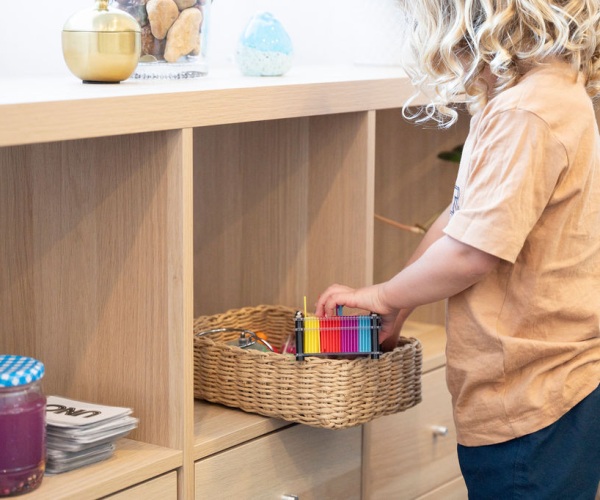Starting kindy in WA is a big step in a child’s development, one that brings new routines, new social environments, and new expectations. As Occupational Therapists, we often hear from parents who are unsure if their child is truly ready for this important transition.
You might be asking yourself:
Is my child ready for kindy?
Do they have the skills they need to succeed in a classroom environment?
How can I support their development at home?
What does “Kindy readiness” really mean?
Kindy readiness is about more than being the right age, it’s about having a foundation of developmental skills that allow a child to participate in, and benefit from, a structured learning environment.
From an OT’s perspective, kindy readiness involves several key developmental domains:
1. Fine motor skills
Using a pencil with some control
Cutting with scissors
Opening lunch containers, managing zippers and buttons
Drawing basic shapes or writing their name
These tasks require good hand strength, ability, and coordination, all areas an OT can support.
2. Gross Motor and postural control
Sitting upright at a table
Moving safely through the playground or classroom
Balancing, jumping, or climbing with confidence
OT’s look at the child’s core strength, balance, and coordination, which are essential for participation and safety in kindy.
3. Sensory processing
Tolerating busy or noisy environments
Managing changes in routine
Responding appropriately to sensory input (e.g. textures, sounds, lights)
Children with sensory processing challenges may find the kindy environment overwhelming. OT’s are trained to identify and help manage these responses and environment.
4. Social and emotional development
Playing cooperatively with peers
Understanding and following instructions
Managing frustration, separation anxiety, or emotional outbursts
OTs can help children develop the self-regulation skills needed to thrive in a group setting.
5. Cognitive and executive functioning skills
Paying attention during mat time
Remembering multi-step instructions
Starting and finishing tasks independently
These skills are critical for learning, and may require extra support if a child has attention or processing difficulties. OT’s can help children develop these skills.
How Can an Occupational Therapist Help?
An Occupational Therapist can assess your child’s readiness across all these domains and provide targeted support in areas where they may be struggling.
Here are some of the ways an OT can assist:
Developmental assessment
We assess your child’s motor, sensory, and self-care skills to determine if they’re ready for the challenges of kindy. Early identification of delays allows for early intervention, improving outcomes and building confidence.
Individualised support plans
Every child develops at their own pace. An OT can create a customised plan that targets your child’s specific needs, whether it’s improving pencil grip, managing sensory sensitivities, or building independence with toileting or dressing.
School preparation programs
Many OTs offer small-group or 1:1 school readiness programs to build confidence and essential skills before term starts. These programs often focus on fine motor development, social skills, following routines, and managing transitions.
Parent coaching
We also support you, the parent/carer. From activity ideas at home to strategies for easing separation anxiety, we’ll work with you to create a supportive home environment that complements your child’s therapy goals.
What are the signs a child may need OT before starting kindy?
You might consider speaking with an OT if your child:
-Struggles with drawing, cutting, or using utensils
-Avoids messy play, loud environments, or new situations
-Has trouble separating from caregivers
-Doesn’t yet play cooperatively with other children
-Finds it hard to follow instructions or stay focused on tasks
-Has difficulty dressing, toileting, or feeding themselves
Remember, early support can make a big difference. Children don’t need to be “perfect” to start kindy, but if certain skills are missing, OT can help bridge the gap.
Support kindy readiness at home
Here are some simple, OT approved ways you can support your child’s development:
-Provide daily opportunities for drawing, painting, cutting, and playdough
-Read books and talk about emotions and social scenarios
-Encourage independent dressing, toileting, and feeding
-Visit new environments together to practise adjusting to change
-Create routines and talk about what to expect at kindy
Ready to help your child thrive in kindy?
At Prosper Health Collective, our experienced Perth Occupational Therapists are here to support your child’s journey into kindy, whether that’s through assessment, therapy, or simply some added guidance.
Or, if you’d like personalised support, book an OT consultation with our team contact us today.
Let’s work together to help your child feel confident, capable, and kindy-ready.
